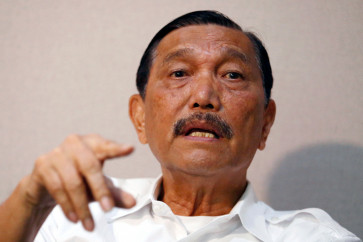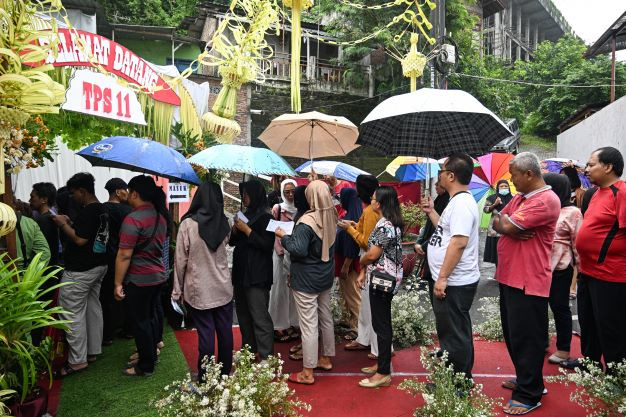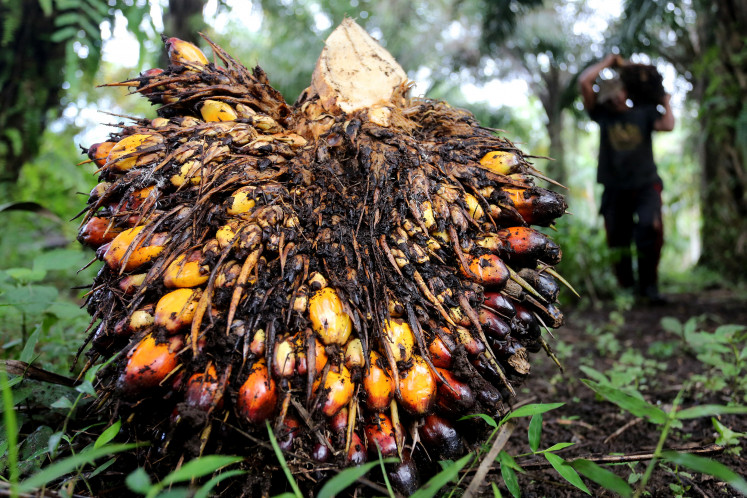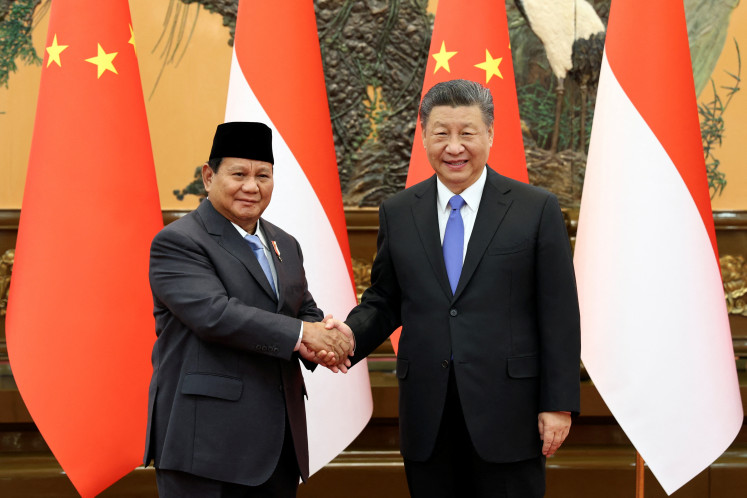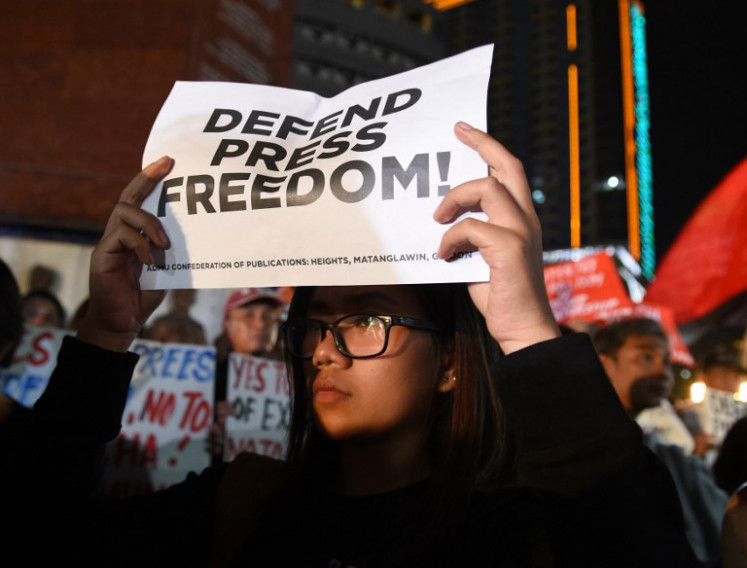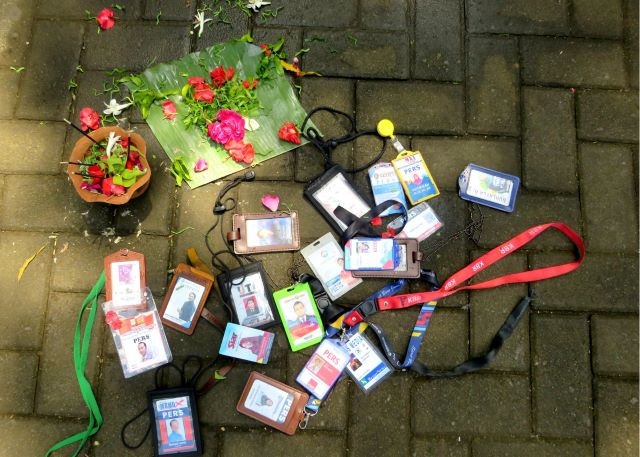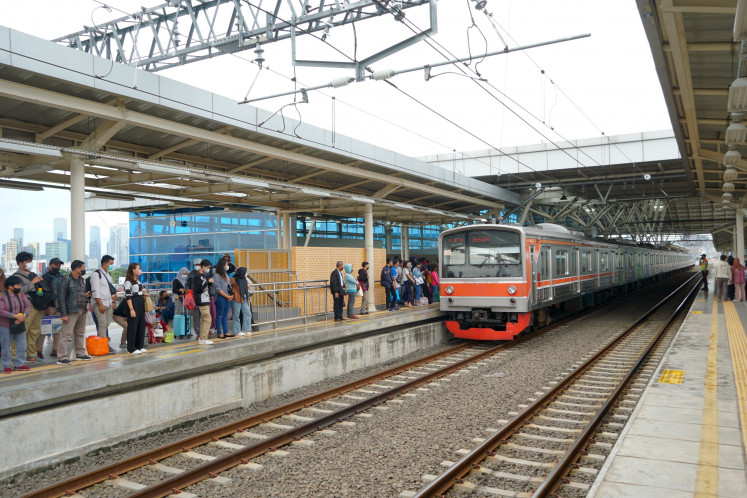Radiant paths: Kartini’s light in the energy sector
As we celebrate Kartini Day on April 21 this year, let us look to the legacy of the national heroine in light of the global transition to renewables and how women in Indonesia and around the world can be empowered to contribute to this still nascent, yet rapidly growing sector.
Change Size
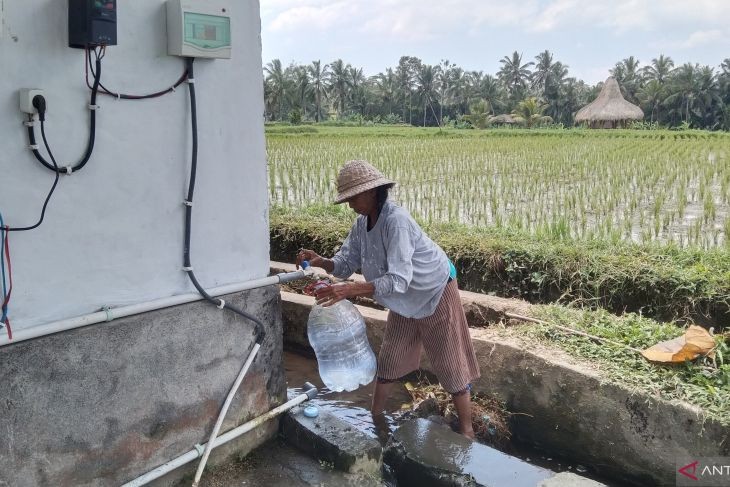 A farmer refills an empty gallon bottle on Sept. 2, 2023 at a solar-powered community well in Keliki village, Gianyar regency, Bali. (Antara/Dewa Ketut Sudiarta Wiguna)
A farmer refills an empty gallon bottle on Sept. 2, 2023 at a solar-powered community well in Keliki village, Gianyar regency, Bali. (Antara/Dewa Ketut Sudiarta Wiguna)
M
any of us will be celebrating Kartini Day tomorrow by donning kebaya (traditional blouse) and taking part in cooking contests and other traditional customs. Yet, beyond this sartorial homage lies a deeper narrative of courage, intellect and advocacy that defined Raden Ajeng Kartini's short-lived, yet impactful life.
Carrying with us the enlightening wisdom found in Kartini's book Out of Darkness Comes Light, a collection of her thoughts, ideals and aspirations, it is an opportune time to think about her legacy.
Kartini's vision transcended her time, encompassing a holistic approach to strengthening the resilience of Indonesian women in the face of societal hurdles.
Her pioneering efforts not only laid the groundwork for a more inclusive society where women could excel, but also shattered barriers and redefined the narrative surrounding women’s roles in Indonesian society at the start of the 20th century.
Today, as we navigate an increasingly complex world marked by multifaceted challenges, women continue to face unequal burdens. According to the World Economy Forum’s Global Gender Gap Report, it will take another 131 years before we attain gender parity.
The swift transformations we encounter – be they driven by technological advancements, digital or otherwise, or the profound impacts of climate change and various other disruptions – demand both women and men to adapt. And to effectively navigate these changes, individuals must equip themselves with the requisite skills, capacities and willingness.
In this regard, the ongoing transition to more sustainable and renewable sources of energy, in Indonesia and across the world, serves as a prime example of the opportunities that lie ahead despite the bottlenecks that must still be overcome.
The energy sector plays a pivotal role in shaping the resilience of communities and economies, yet the landscape remains starkly gender disparate.
In Indonesia, 11 percent of households are headed by women and face heightened vulnerability to energy poverty. In a multicountry concept paper developed by the Indonesian State Secretariat and the Energy and Mineral Resources Ministry in 2023, it was revealed that female-headed households are twice as likely to lack access to electricity and clean cooking fuel, underscoring the urgent need for gender-inclusive energy policies and programs.
At the policy level, research has shown that companies with more women in leadership roles are more likely to invest in renewable energy and to reduce carbon emissions; yet there is stark underrepresentation of women in corporate executive boards.
The disparity is pronounced in Indonesia, where women hold a mere 5 percent of decision-making positions in the energy sector. Globally, women constitute only 32 percent of the renewable energy workforce, reflecting a systemic gap in the energy industry.
Likewise, global analyses show that by and large, energy frameworks are gender blind, meaning that they do not consider the differentiated needs of women and men, nor do they reflect the specific capacities to access and participate in energy services. At the same time, as important consumers of energy, women play a critical role at the household and community levels in terms of enabling efficient energy consumption, such as energy use for cooking.
Strengthening women’s agency and decision-making, both within the public and in their homes, and enabling them to fully participate in the energy-related discourse is therefore pivotal.
First, energy is not only important on its own: It serves as a lynchpin and enabler for many other positive dividends. By expanding access to sustainable energy, we not only address energy poverty but also create a ripple effect that positively impacts a multitude of other development goals, accelerating the achievement of a sustainable future.
A recent study conducted by UN Women underscores the transformative power of universal electricity access, projecting that achieving Sustainable Development Goal (SDG) 7 by 2050 could lift 185 million women and girls out of poverty globally.
The tangible impact of electrification is evident in the context of rural communities, where increased access to electricity has been shown to boost female employment by releasing women from household chores and enabling them to engage in microenterprises.
There are many stories of empowerment in Indonesia that underscore the profound socioeconomic benefits that stem from energy access through energy. The inspiring journey of Ibu (Mrs.) Nilis, a seamstress from Renah Kasah Village in Jambi, is one such example.
With support from a United Nations Development Programme (UNDP) project that facilitates access to electricity, Ibu Nilis no longer relies on flashlights to continue her work after dark. Her newfound access to reliable and sustainable sources of electricity has enhanced her productivity, increased her potential for a better income and resulted in a better quality of life overall.
With Indonesia’s commitment to the energy transition, the government is firmly committed to and recognizes the importance of increasing women’s participation as decision-makers in public and private institutions, as workers in industries and as users at the grassroots. To support these efforts, UNDP, in collaboration with the energy ministry, has embarked on an initiative to empower women and enhance their participation in the renewable energy field.
For instance, one training program engaged female professionals in the renewable energy field and trained them with the expertise and skills they need to excel as energy managers and auditors. Aptly named “Srikandi”, after a female warrior in the Mahabharata epic, the training program symbolizes the emergence of a new generation of empowered women committed to energy conservation and sustainable practices, earning them the title of the “Srikandi of energy conservation”.
In Indonesia, the building blocks are in place to advance transformative change through initiatives that are aimed at catalyzing system-wide shifts in the energy sector, such as the Just Energy Transition Partnership. As an important ally, UNDP, together with key Indonesian and international partners, is poised to foster an energy transition that is just and emphasizes gender equality.
By empowering women's labor force participation, UNDP aims to demonstrate the transformative impact of inclusive economic participation in advancing women's empowerment within the energy sector, as well as accelerating the achievement of other important SDGs.
As we honor Kartini Day and reflect on the remarkable legacy of a visionary champion for women's rights, Kartini's ethos of empowerment and resilience shines through initiatives like the Srikandi Energy program, embodying her legacy of courage and progress.
Yet, our journey toward realizing Kartini's vision of gender equality and empowerment is ongoing. It is essential that, along with Indonesia’s energy transition pathway, we ensure sustainable electricity access for all 11 percent of households led by women.
Let us harness Kartini’s guiding light to propel us forward in our quest for a more inclusive and equitable future.
***
The writer is deputy resident representative at UNDP Indonesia.



